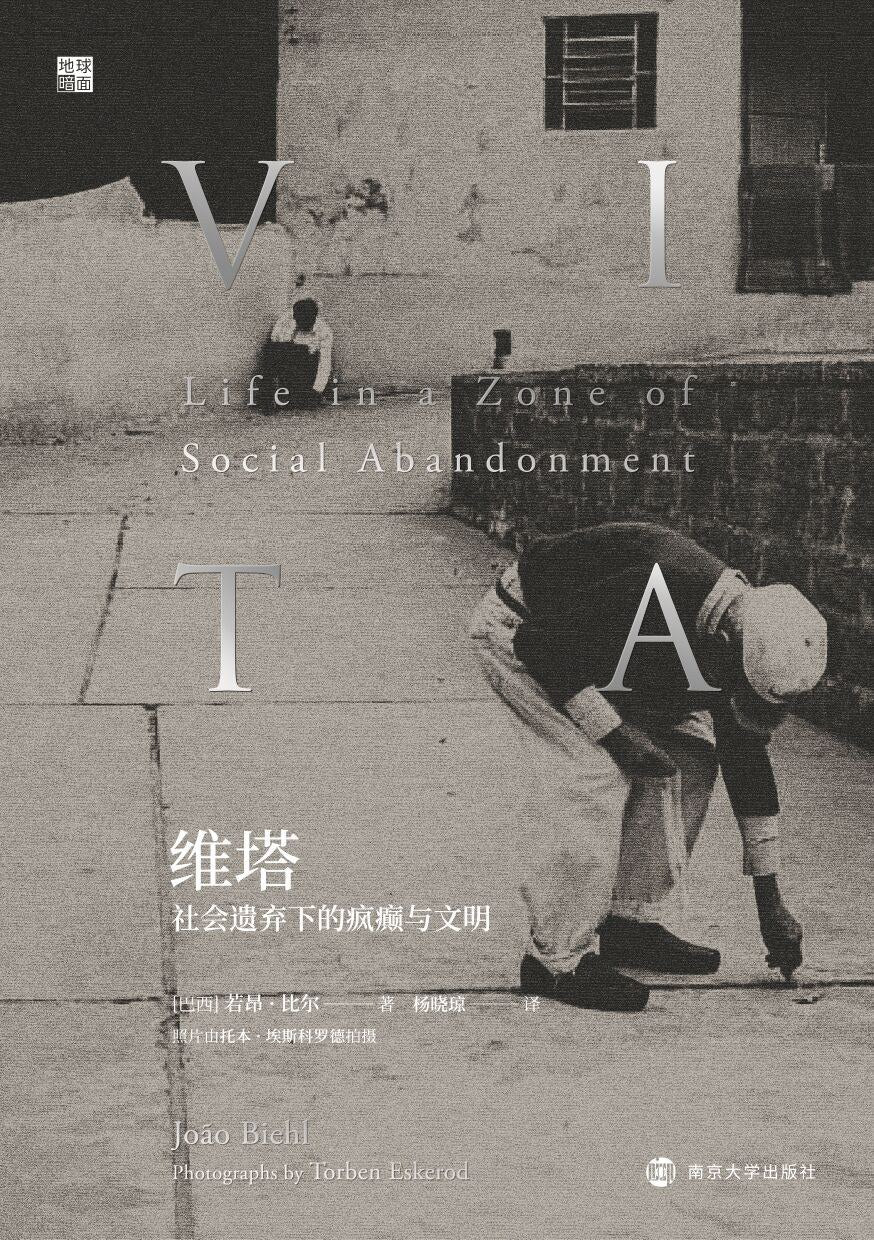WULOLIFE
《维塔: 社会遗弃下的疯癫与文明》作者:(巴西) 若昂·比尔 译者:杨晓琼南京大学出版社
《维塔: 社会遗弃下的疯癫与文明》作者:(巴西) 若昂·比尔 译者:杨晓琼南京大学出版社
Couldn't load pickup availability
Description
内容简介· · · · · ·
在维塔,那些患病者、无家可归的人都被留在这里等死。卡塔里娜也是如此。
穿过濒临消声的语词和被宣判失效的回忆,环绕卡塔里娜的一切成为一种见证;
一个人如何能逃离社会性死亡的黑洞?
···
★震颤心灵的医学人类学经典
获玛格丽特·米德奖、维克多·特纳民族志写作奖、斯特林奖最佳心理人类学著作等七奖项
全球卫生及医学人文领域知名学者凯博文特别赞誉
★清华大学社会学系教授景军导读推荐
···
在巴西,像维塔这样的社会遗弃空间到处浮现。
这个令人难以忘却又不安的故事集中书写了一个名叫卡塔里娜的女人的经历,人类学学者若昂· 比尔开启了一段侦探小说般的探索卡塔里娜人生的旅程:通过与卡塔里娜对话、寻访其亲属、追踪她的医疗档案,解开卡塔里娜编写的“词典”中神秘的、诗歌一般的词句,追溯她的见弃命运和病理状况背后的家庭、医疗、国家和经济的复杂网络。
维塔里的人,仍回忆着当父亲、母亲、儿子、女儿、叔叔、阿姨、祖父、祖母的经历,却被排除在现实世界之外,成为无人认领的生命。在这个由官僚机构和亲属关系共同认可的社会性死亡的语域,药物成为家庭治理的工具,收容成为剥夺人之权利的终极名义。《维塔》不仅仅是又一个关于遗弃的故事⸺它向任人死亡的社会逻辑发出质询,也试图夺回人之为人的意义和尊严。
···
“我多么希望卡塔里娜能够读一读我们共同工作的成果,看到她自己在书页中浮现出来,寻到另一种结局.
【媒体及名人推荐】
若昂·比尔的《维塔》是非常引人注目的作品,卡塔里娜的故事将在读者心中萦绕不去。这本书的中心任务必定会成为一个人类学经典。——凯博文
Description
作者以六年的(与卡塔里娜的)对话,捕捉了一个牵动人心的社会遗弃的故事,也刻画高级研究院JI斯特利奖颁奖词
本书在理论讨论和周密的田野工作中做到了很好的平衡,为当代巴西的社会遗弃动力学提供了一个复杂而具有原创性的洞见。比尔的启发思考的研究不仅使疗养院中边缘个体的令人惊愕的经验为人所见,而且呈现了巴西的社会、政治和文化方面的影响,正是它们进一步加深这种贫困者期侵犯。——《亚利桑那州西班牙文化研究期刊》
【编辑推荐】
◎《维塔》因其对社会生活和个体经验的共同关照,成为民族志部具有代表性的作品。巴西社会转型的历程、精神疾病治疗的变迁和个体的生命史彼此交错,构成我们理解生命、思想和伦理境况的多重脉络。一部必读之作。
◎若昂·比尔的研究拆解了虬结缠绕的现实,剥离出层层交叠的社会因素,使得家庭、社会和医疗技术交织而成的复杂网络真正变得可见。围绕着维塔这座以“生命”为名的收容所,我们看到政治经济政策、由文化传统与经济利益共同牵动的亲属关系、制度化的医疗体系、道德环境,以及人性在每一个个体身上的展开,如何以意想不到的方式彼此作用,共同造就了社会遗弃的动力学。
◎编写“词典”的卡塔里娜,展现出一个人被排除于现实之外时所仍然具有的惊人能动性,成为生命面对急遽变化仍奋力找寻自身位置的鲜活渴望的见证。
◎独特的叙述脉络给作品带来了推理小说般的节奏,作者对个体生命状态的敏锐体察更在理论创见之外赋予了作品深刻的情感维度。一个“被洗去了所有特征,成了一个人造的矿石”的“早几个时代留下的人”,唤起和记忆。
◎遗弃不仅仅发生在收容所内外。《维塔》带给我们诸多切近的省富于现实意义的作品。
◎文中附有摄影师托本·埃斯科罗德随同拍摄的四十余幅照片。如作者所说,“倘若这些照片在你心中挥之不去,那是不遥远。
作者简介· · · · · ·
【作者简介】
若昂·比尔(João Biehl,普林斯顿大学域和关注议题包括医疗人类学、民族志理论、全球卫生、药疗化、社会与环境正义、拉丁美洲社会等。比尔也是普林斯顿大学全球健康计划的联合创始人之一,并自2018年以来负责指导致力于跨学科前沿问题研究的巴西实验室。
除《维塔》外,著有《活下去的意愿:艾滋病疗法与生存政治》,获得英国皇家人类学学会颁发的韦尔科姆奖章和美国人类学协会颁发的黛安娜·福赛思奖。另有合编作品:《当全球健康的批判研究》(与阿德里安娜·佩特里纳),《主体性:民族志调查》(与拜伦·古德、凯博文),《未完成:“生成”的人类学》(与彼得·洛克)。
书中照片拍摄者托本·埃斯科罗(Torben Eskerod。
【译者简介】
杨晓琼,自由译者》《中亚行纪》。
